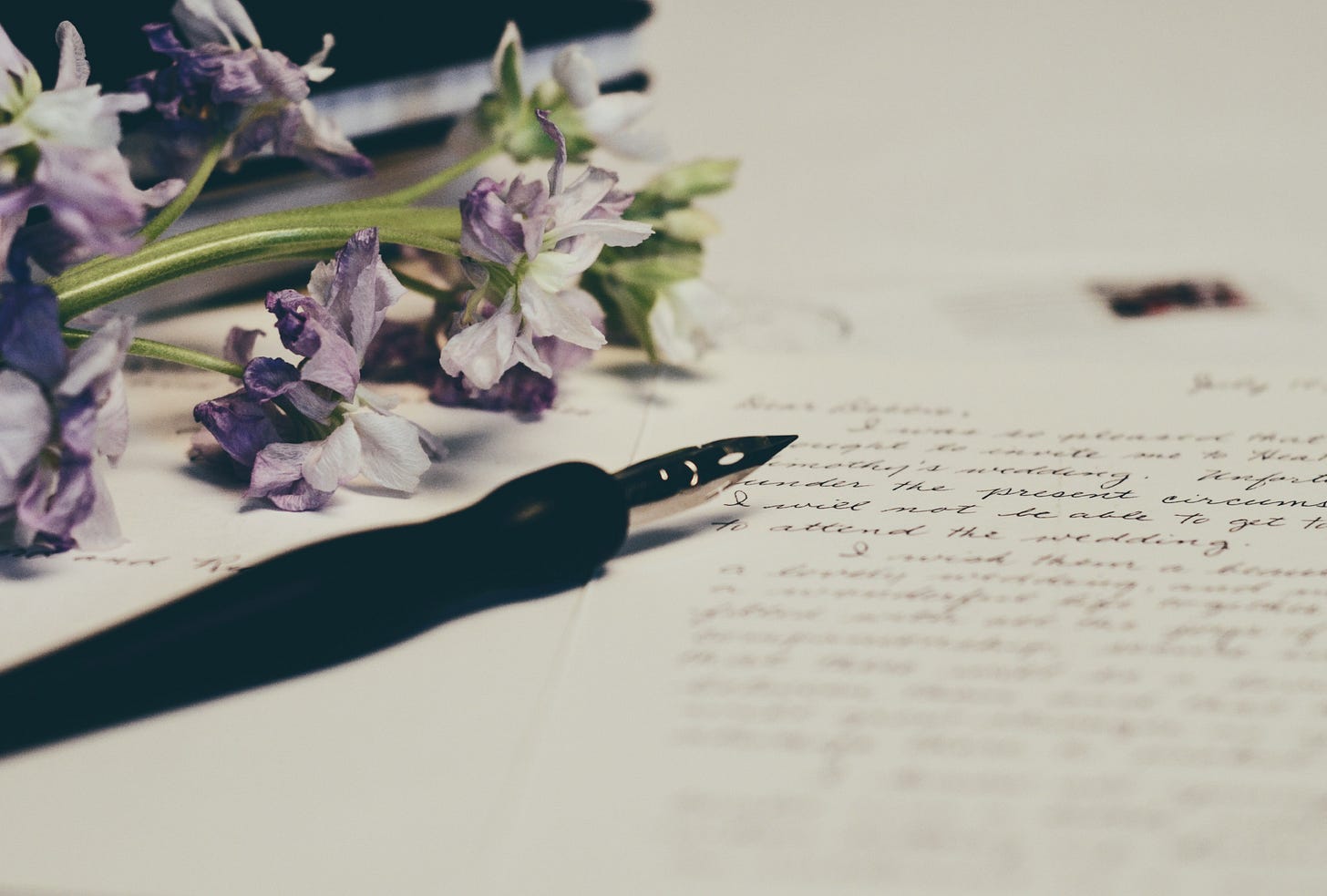'Euphoria'
On Elin Cullhed's portrayal of Sylvia Plath's final year
I recently picked up the much anticipated translated novel Euphoria by Swedish writer Elin Cullhed which is a fictionalised biography of the last year of Sylvia Plath’s life up to her suicide at the age of 30.
Though this was clearly a time of turmoil for Plath, when her marriage to the poet and writer Ted Hughes crumbled following his infidelity, it was also a prolific time for her writing. Plath wrote some of her most famous and accomplished poems during this final year, culminating in the collection Ariel, as well as seeing the publication of her first novel, The Bell Jar, just a month prior to her death.
Plath was also grappling with the demands of motherhood at this time, taking care of her first child Frieda and pregnant with her second, Nicholas. She had moved with Hughes to a drafty house in Devon, England and was struggling to combine developing her writing with being a good mother.
I came to Euphoria with the anticipation of a sad story of Plath’s last months, but what I found was something quite different. I hadn’t anticipated that it would be written from the first person perspective of Plath herself, for a start. I think, perhaps, a third person perspective would have allowed for a certain amount of distance - but then I think that was likely Cullhed’s intention.
The book features some beautifully written pictorial language and the black humour for which Plath’s own work is famous. Elin Cullhed has clearly studied this writer and associated with her deeply in order to complete this labour of love. There isn’t one sentence within the narrative where I struggled to think it could have been thought, said, or written by Plath herself.
Plath as a woman, a mother, and a writer of outstanding accomplishment is explored in this final year by Cullhed as we see the woman who was striving to complete her best work, as well as openly displaying the depths of love she felt for the two young children she had with Hughes.
Speaking on YouTube, Swedish author Eiln Cullhed discusses how she wanted to portray the complexities of the Plath/Hughes marriage, and specifically the effects of how motherhood results in a person entering a vulnerable state. Cullhed refers to herself as writing from this vulnerable place herself, understanding what she refers to as ‘the extreme nature of motherhood’.
As an academic and author, Cullhed explains that she, too, was grappling with young motherhood when writing Euphoria, and that Plath was writing from the same place in the last year of her life. Cullhed is perceptive in claiming that Plath’s poems, written in the late 1950’s and early 1960’s, were pretty radical for their time in the way they give a voice to the mother, in what she claims is Plath speaking to the child through her poems.
She further expresses the wish of wanting to write Plath from the point of view of her being very much alive, as a woman, writer, and mother, rather than the suicide which clouds the public view of her.
The trouble is, I found it difficult to escape the oncoming calamity of Plath’s demise, and the jealousy and rage Cullhed’s Plath expresses within her relationship with Hughes was difficult to read. So raw, vulnerable, and realistic is her narrative, I persistently found myself pushing the book away, unable to read large chunks of it at a sitting. If I’m honest, I sometimes find Plath’s poetry the same way. Though I appreciate every line and sentiment of her work, it is not poetry I read if I’ve had a bad day and need to unwind.
The poems within the Ariel collection ache with a sincerity and raw vulnerability, as well as an extreme, unprecedented talent. Cullhed’s portrayal of Plath appears to do the same. Though I am able to accept the Plath I find within her poetry collection, I think the fact that her words are obscured by poetical devices and opaque meanings, allows for a slight distance from the writer. Within Euphoria, this distance is lost, allowing for a more nuanced glimpse into the mental state of Plath as she negotiates her marriage, motherhood, and blossoming writing career in the last year of her life.
Though the author has taken what we know of Plath from her journals and other sources, as well as read between the lines of her work, this is still a work of fiction. However, so convincing of Plath’s inner state and vulnerability is Cullhed that it feels difficult to separate it from biography.
This put me in mind of the whole idea of fictionalised autobiography. It is no secret that Plath’s own novel The Bell Jar is a lightly edited version of her own experience of her first suicide attempt and the time she spent receiving treatment for her depression as a young woman (though the novel is so much more than that, and again, contains such black humour and insight that it is surprisingly uplifting).
In a time of the ever-increasing culture of over-sharing, there appears to be a constant thirst for ‘tell-all’ blogs, vlogs, and memoirs. It can often cause those of us who don’t live in the spotlight to cringe as we see ‘celebrities’ willing to share their inner most lives with the public, and it can seem that there are literally no barriers to what someone is willing to share online.
A proponent of the modernist writing style, Jean Rhys was another writer famous for her autobiographical ‘fictional’ women. I can’t help wondering whether, if Rhys had been writing in this century, she would have found an outlet in the tell-all arena to share these stories.
Each female protagonist of Rhys’s novels bear the hallmarks of her own experiences. Within her character of Anna Morgan in her 1934 novel Voyage in the Dark, for example, Rhys gives us a young female Creole chorus girl, who has arrived in a cold and damp England, passing from man to man in an effort to survive. This is pretty much Rhys’s own personal experience on arrival in a dark and unwelcoming England in the 1930’s.
Elements of Rhys’s life appear scattered throughout her novels and stories. In a short story named ‘Let Them Call It Jazz’, the protagonist Selina is a Caribbean immigrant in 1950’s England, who spends some time in Holloway prison for being drunk and disorderly - as Rhys herself did.
But to identify all of Rhys’s characters as being representations of her own experience limits her as a writer. Considering Rhys’s considerable oeuvre, the women she writes about represent different aspects and experiences of her own life, perhaps, but are intensely original, albeit all expressing the excruciating alienation Rhys felt throughout her life.
Rhys herself was quoted as acknowledging that ‘Writing influences life, and life influences writing – indeed they become inextricable.’[1] She denied however that her fiction was autobiographical, adding the important disclaimer that ‘the feelings are always mine’.[2]
In Cullhed’s Euphoria, of course, the dialogue and narrative must be fictionalised, because nobody could know Plath’s thoughts and ideas exactly, (though her detailed and wonderfully edited journals help, and which Cullhed mentions in her acknowledgement as being invaluable to her writing of the book).
But as a writer, I find myself questioning whether we are ever able to separate out our own lived experiences from our writing, and whether fiction can ever not be part autobiography. As an essayist, it is easier to see how lived experience feeds into creating non-fiction narratives; some of the best essayists and journalists have done this to great effect.
But what about fiction writers? If, as Rhys claimed, the feelings in the work belong to the author creating it, is it even possible - or perhaps desirable - to separate the two worlds entirely?
Postscript: I’d love to know what any fiction writers out there feel about this question! Please leave your own experiences of this in the comments.
[1] Jean Rhys in Kathleen Wheeler, ‘Modernist’ Women Writers and Narrative Art, (London: MacMillan Press, 1994), p101.
[2] Wheeler, p102.





These are such tricky and great questions. I think all writing is a 'part of us' even if a reflection of what we see in others. Kundera (famous for metafiction) talks of the way that all his characters are fragments of himself in The Unbearable Lightness of Being. But I guess 'autobiography' implies something else -- facts and specific plot-lines. We hear to 'write what you know' then are warned that the 'personal novel' can be trite or emo. But I don't think it is -- I think it has to be what we know or who we are, reinvented. I guess the reinvention is key.
I've always found Ariel to be so full of life -- as you discuss, such an interesting opposition to the coming real-life suicide. It's as if the life force or contained emotions were too much for Plath to channel even after a release in poetry.
I wonder what you think of Paule Marshall's novel Brown Girl, Brownstones.